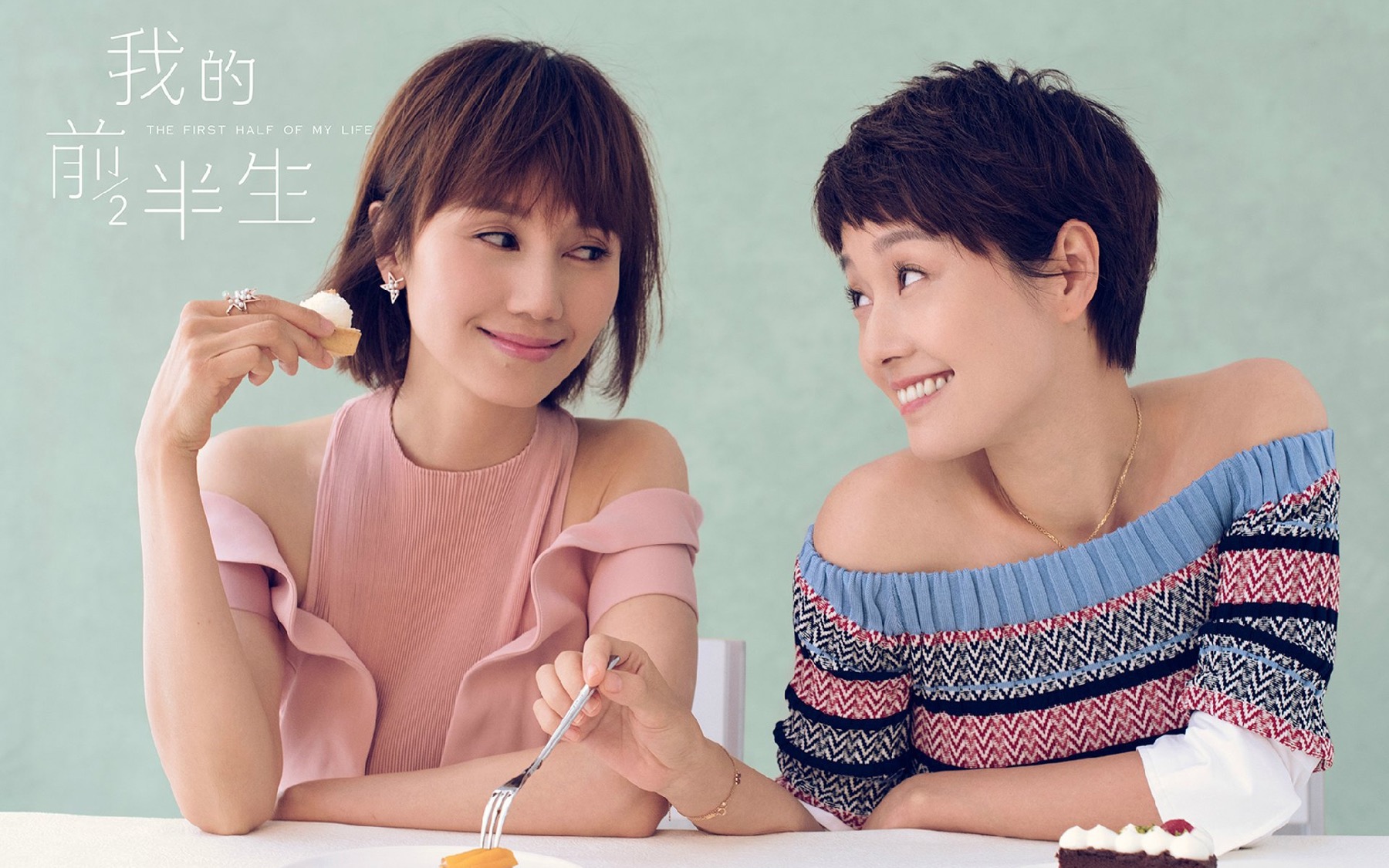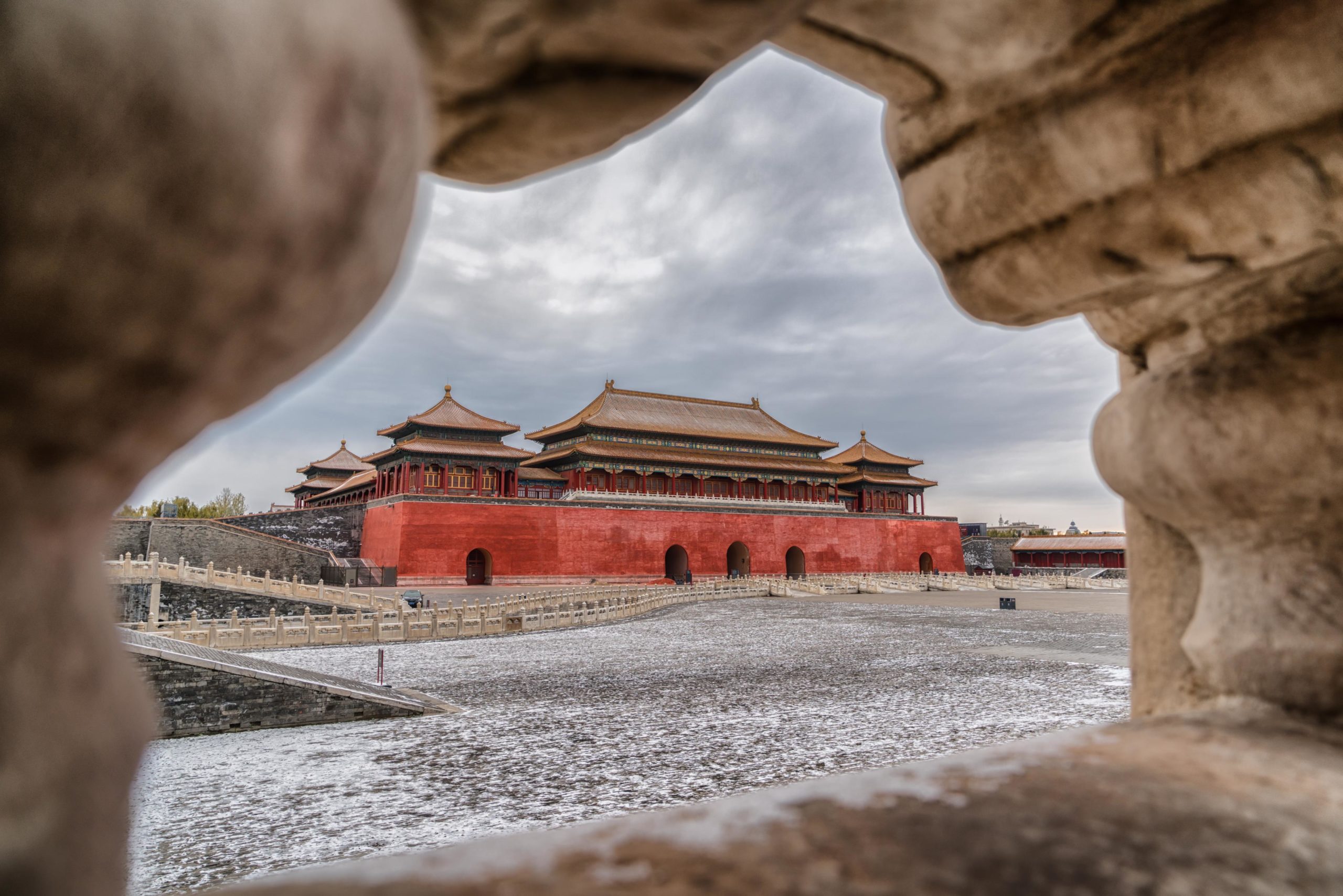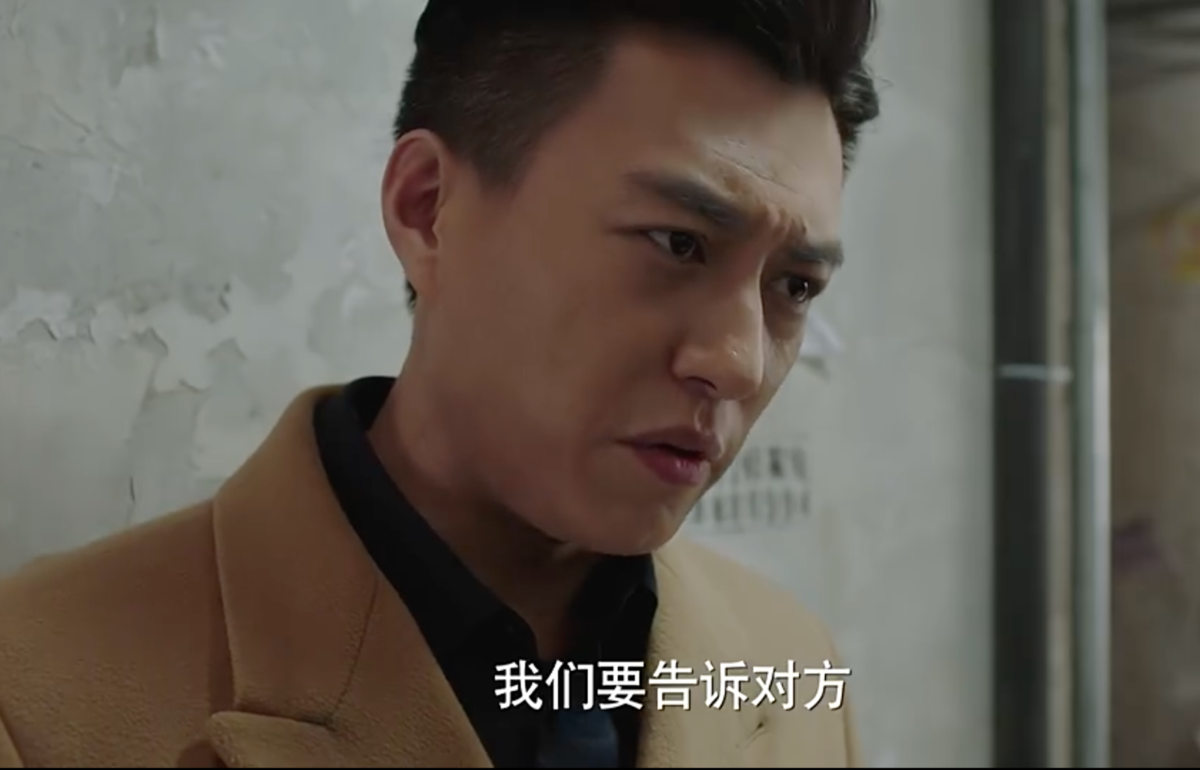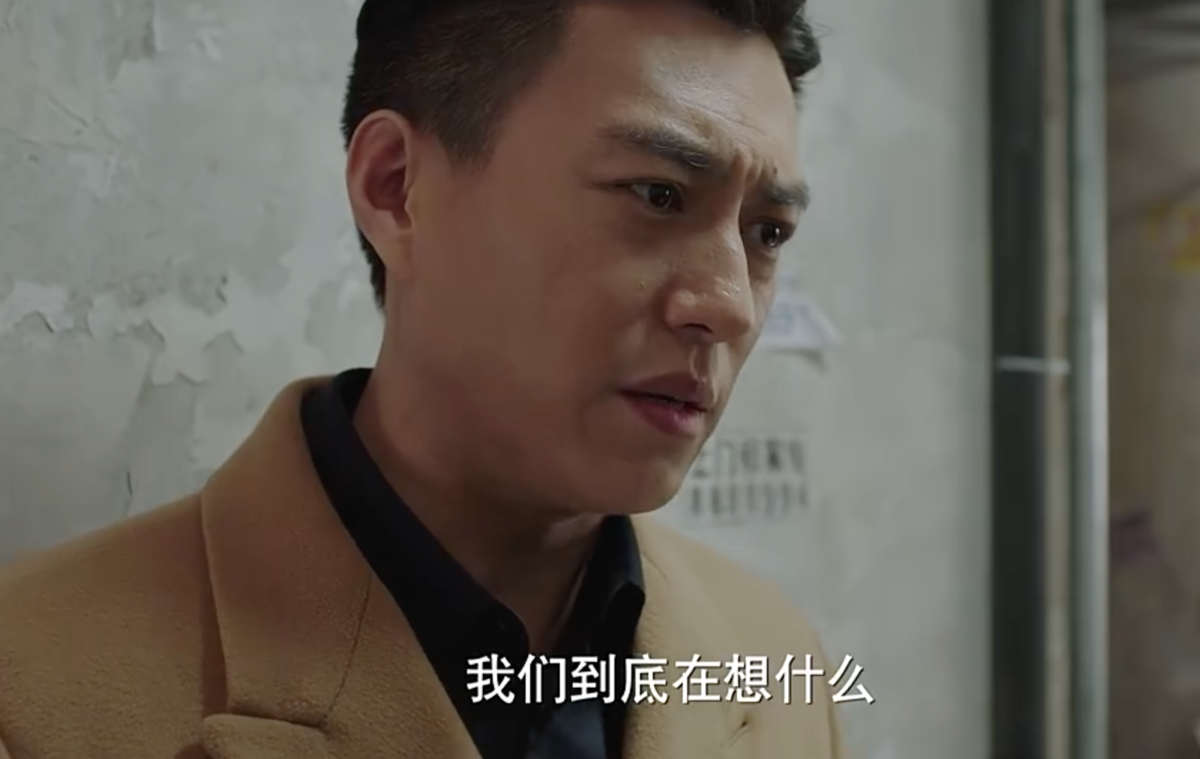Why Chinese viewers are hate-watching ‘The First Half of My Life,’ the country’s hottest TV drama
This melodramatic tale of materialism, individualism, love, and female friendship drew record ratings over the summer, all while eliciting heaps of praise and outrage.

The principal characters of The First Half of My Life:
Luo Zijun 罗子君

Main protagonist. A naive and spoiled housewife who strives to achieve independence after a divorce.
Chen Junsheng 陈俊生

Luo’s husband. Chen breaks the marriage in pursuit of a stronger emotional connection with another woman. Chen is an easygoing and dutiful man with apparent weaknesses.
Tang Jing 唐晶

Luo’s best friend, a highly successful career woman. Tang believes in friendship but is skeptical of romantic love.
He Han 贺涵

Tang’s boyfriend. Charming and conceited, he is the managing partner of an established consultancy.
Ling Ling 凌玲

The home-wrecker in Luo’s marriage. Underneath Ling’s gentle appearance is her manipulative personality.
Xue Zhenzhu 薛甄珠

Luo’s mother. A comical character with an insatiable desire for money.
With contemporary Chinese lives and relationships taking center stage, Shanghai-based The First Half of My Life 我的前半生 is the latest hit on the Chinese TV scene. Its 42-episode first season concluded in late July with record-breaking ratings, and it continues to go strong on various online streaming platforms. But despite its popularity, the show has been criticized for celebrating characters who are manipulative, materialistic, and fake.
The First Half of My Life centers on Luo Zijun 罗子君, a naive thirtysomething housewife in the middle of divorce proceedings with her well-to-do husband, Chen Junsheng 陈俊生. Mired in a midlife crisis, Chen falls for one of his employees, Ling Ling 凌玲, an opportunist who works hard to end Chen’s marriage and claim Chen for herself.
With help from her best friend, Tang Jing 唐晶, and Tang’s shrewd and charming boss and boyfriend, He Han 贺涵, Luo slowly finds stability and achieves independence. But in the process, she secretly develops a crush on He. Though He reciprocates her feelings, Luo resists He’s pursuit, hoping to preserve her friendship with Tang. Unsurprisingly, the women’s friendship is shattered after Tang learns of her boyfriend’s wavering commitment. In the season finale, Luo decides to depart Shanghai to pursue her career, leaving the love triangle between Tang and He unresolved — thereby guaranteeing a sequel.
The show wasn’t supposed to be a hit, yet it set Chinese social media on fire. Some viewers applauded its realistic portrayal of contemporary urban life in China, while others condemned the producers’ ambivalent moral attitude toward marriage and friendship.
Glorifying materialism
Wealth worship is a recurring theme in Chinese TV shows, and First Half is no exception. Three of the main characters in First Half — Chen, Tang, and He — have successful business consulting careers and high-earning power. According to the financial publication Securities Times, Chen, as an engagement manager, would make about 1.5 million yuan ($230,000) per year. As Chen’s senior, Tang’s annual salary would approach 2 million yuan ($300,000). However, they are nothing compared with Tang’s boyfriend, who reels in over 6 million yuan ($1 million) per year as a managing partner. Many viewers, who are decidedly not wealthy, seem thrilled to peer into the entangled lives of these high-earning individuals.

Avid fans of the show gossip about the three wealthy characters with great enthusiasm, as if they are relatives or neighbors. They judge the characters’ fashion sense and lifestyles, epitomized by individually tailored shoes and Jaeger-LeCoultre or Carl F. Bucherer watches. Somehow, viewers find these characters relatable because they are self-starters from middle-class backgrounds.
One such materialistic yet relatable character is Luo’s mother, Xue Zhenzhu 薛甄珠, a stereotypically busy Shanghai mom who dedicates her entire life to finding the best (read: richest) partners for her two daughters. Prior to Luo’s divorce, Xue constantly compliments her amiable son-in-law for giving her money and gifts on a regular basis. Meanwhile, she belittles, insults, and ridicules her younger son-in-law for making too little money.
But after Luo’s marriage falls apart, Xue shifts into high gear to find another gold mine for her daughter, all the while scouting senior dance partners for herself. It is obvious that the only obsession driving her is cash. When she discovers that the affluent He Han admires her daughter, Xue goes to absurd lengths to bring them together. She even tries to convince her daughter’s best friend, Tang, to give up He, telling Tang that she is so capable that she can always find someone else.

Fake female independence
One of First Half’s main arcs is Luo’s growth from ignorant and dependent housewife to confident and self-reliant woman, but astute viewers aren’t buying the transformation. Despite little work experience, Luo finds herself in a fruitful career largely attained with help from men. Chen, her ex-husband, looks out for her. Then He Han, whose affection for her mounts by the day, grants her employment and favorable treatment. After Luo joins the consulting firm, Chen and He compete for her affection. The situation gets farcical when you consider that she is now in the same company as Ling, who pried away her ex-husband. Ling becomes envious with the attention that Luo gets. What’s going on here?
He’s girlfriend Tang, on the other hand, embodies the qualities of a successful career woman — intelligent, ambitious, and impeccably stylish. But even her success is overshadowed by the man who molds her. He Han oversees her career and salary advances. Like Pygmalion, he boasts that Tang is his “best work of art.” He continues to defend her and even cedes major clients to her after he switches to a rival company. It is all very quaint — and pushes the envelope of credulity.

He Han begins to lose interest in Tang when he realizes she is outgrowing him. So he moves on to mentor the newly divorced Luo — Tang’s friend — who can satisfy his desire for control. Unlike Tang, who is autonomous and stubborn, Luo is more devoted and dependent, and her emotional reliance and docility puts He at ease. What plays out on screen is the very real phenomenon in which many men believe that strong and independent women represent a threatening “third sex.”
It’s no wonder that Nanfang Metropolis Daily, by way of critique, wrote an article titled “The First Half of My Life should be renamed My Life as a Parasite.” And yet, a large chunk of the audience wants to see the women find love. As the traditional saying goes, it is better to marry well than to do well (做得好不如嫁得好 zuòdehǎobúrújiàdehǎo).
What role does individualism play?
For the most part, the show’s message and values align with China’s traditional values, emphasizing traditional familial codependence and individual sacrifice. But the men are spurred largely by an irrepressible urge for individualism — whatever that means.
When Chen — a dutiful son — decides to end his marriage, he explains to his parents, “I’ve listened to you since I was a child, but this time, I’ve made up my [own] mind.”

He Han’s individualist ethos is even stronger. In his own words: “The education we have received since we were children tells us to restrain ourselves and be considerate of others. We must speak what others like to hear and refrain from making things difficult for others. The only thing we mustn’t do is to confess our own wishes. But the truth is, we should tell each other, tell the ones we care about, what we’re really thinking and what our true desires are. This is what we should do.”


Once again, online opinions vary. While many viewers direct negative comments toward Chen, few viewers pass the same judgment on He Han. Double standard? Maybe. After all, in many viewers’ eyes, He’s charming look and wealth justify his abhorrent behavior.
Should a responsible adult pursue his own desires and happiness, or should he stick to the obligations circumscribed by society? If a man is handsome, rich, and powerful, he seems to get a pass — but should it be that way? Is there merit in the traditional Chinese belief that powerful figures are above the law and the rest of us? These are all questions the show raises yet poorly answers.

The First Half of My Life reflects the havoc wrought by the many contradictory forces in modern Chinese society. The show’s ambivalence invites debate — it is precisely this ambivalence that has lured in viewers from a wide range of backgrounds. Their disagreements about how to view the characters and their motivations highlight the negotiations and compromises they make in real life. Just like the characters in the show, viewers find it hard to choose between love and money, idealism and pragmatism, individual freedom and societal responsibility. Although it feels like cold, hard reality usually wins out, there is still a glimmer of hope for what could be. And that possibility will hang in the air as we expectantly await The Second Half of My Life.
https://www.youtube.com/watch?v=LkY0-_qW8x4
All 42 episodes of the first season are on YouTube.





